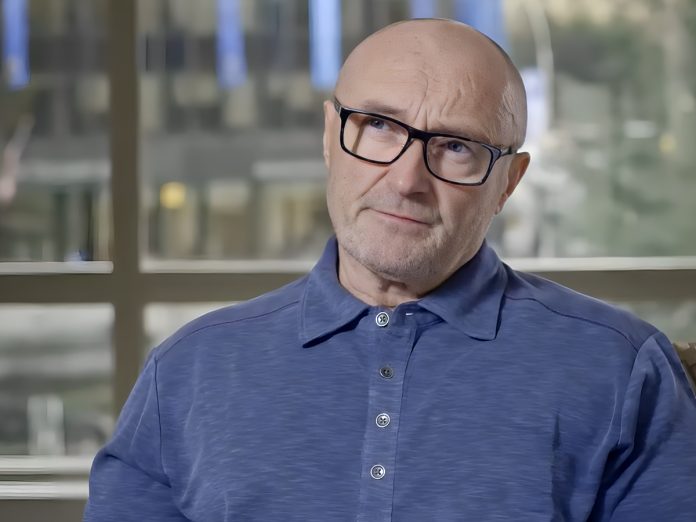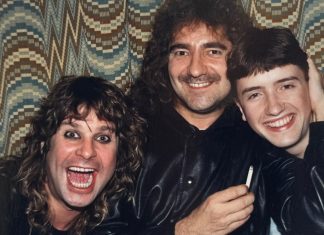
(Credits: Far Out / YouTube Still)
Phil Collins never got into the business to make the most basic rock and roll ever made.
There were certainly artists that tried their best to become superstars, but if there was anything that was going to send Collins’s heart racing, it was trying to capture the same excitement that he had when he heard records as a kid. It may have been bold for him to take on a band like The Beatles on his first solo LP, but when he reached his older age, there was a good chance that he could have done anything.
After all, he had become almost as synonymous with his solo pop hits by the end of the 1980s as he was for being the frontman for Genesis. The more commercial material may have irritated prog purists to no end, but it’s not like he completely walked away from that life. He could even agree that a few of his solo ventures were more than a little bit cheesy, but he could still find time for performing with legends like Eric Clapton or try to stretch the potential of Genesis on some of their more epic songs.
When he first got the pop success, though, he didn’t want to spend time trying to match the success of his favourite records. He could do whatever he wanted now that the spotlight was on him, and the idea of covering a song like ‘You Can’t Hurry Love’ was always going to be more than a little bit weird. There’s nothing wrong with being a fan of Motown, and even the biggest hits of the 1980s did have a habit of paying tribute to the greats, but on Going Back, Collins wasn’t afraid to wear his influences on his sleeve anymore.
The entire album was more or less indebted to the greatest names from Hitsville, but it’s not like Collins was going to mix it up all that much. If anything, a lot of people would have felt miffed if they saw that Collins was only taking the basis of what the Motown songs were and not straying from them in the slightest, but as far as the drummer was concerned, that was a testament to the kind of tunes that he was working with.
He already had some of the greatest names in the genre coming back to work on his record, so he saw no real point in trying to reframe any of those songs as a prog epic or anything, saying, “That was the way they sound best. I’m aware that people say, ‘if you’ve got nothing new to do with it, why not just leave it alone?’ It’s purely selfish. I wanted this to be made because I wanted to sing it. When people try to fool around with the classic stuff, they realise how good the classic stuff was.”
And for as disappointing as it is not to hear him take a few pages from his days in Brand X, it’s not like he’s off the mark here, either. Most people would already say that a song like ‘Uptight’ by Stevie Wonder and ‘Heatwave’ are absolutely perfect the way they are, so the idea of Collins turning them into something dark or try his hand at sweetening them up even more would have looked like showboating more than anything.
Even if he’s stepping into someone else’s shoes, though, Collins isn’t half bad at making this kind of transition, either. ‘You Can’t Hurry Love’ may have been slightly cheesy for the time, but all of those years working with people like Philip Bailey paid off by giving him a lot more of a sense of groove, especially when he lays into the groove with the rest of the band and feels right in place.
It takes a lot for anyone to even attempt to touch what any Motown act ever did, but what Collins did went beyond being a simple runthrough of the classics. Going Back was a love letter to the music that made him want to play in the first place, and while there might be a few duds, this is the kind of soulful record that not even the most fervent Noel Gallagher followers could knock.
Related Topics








